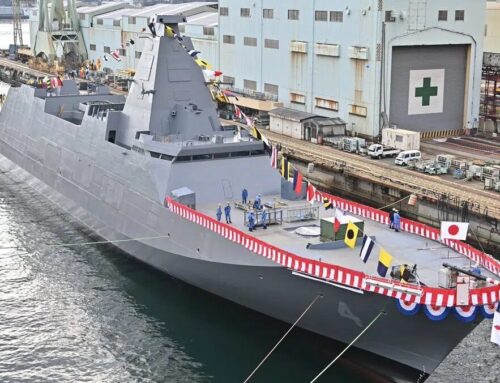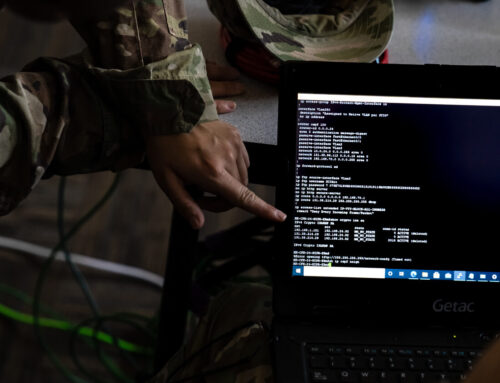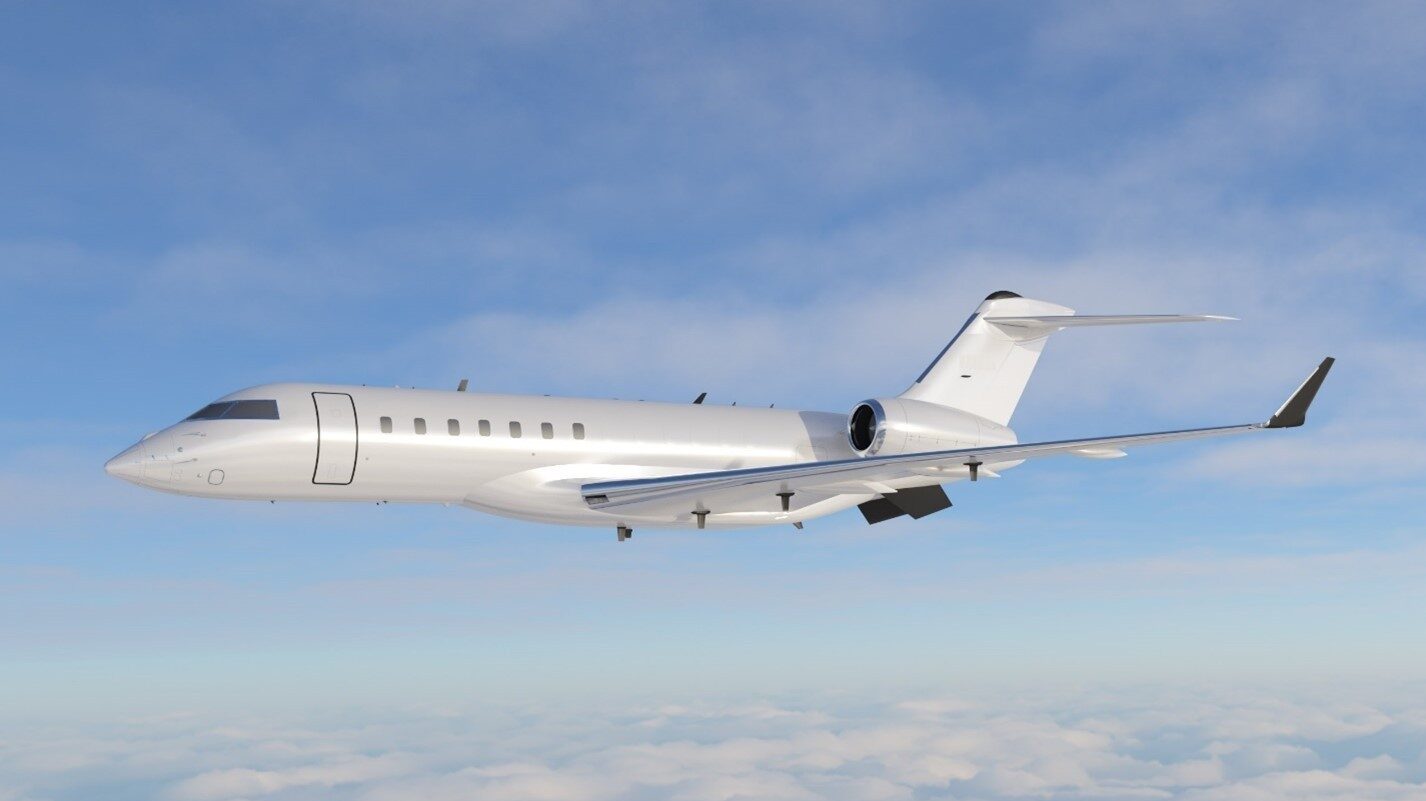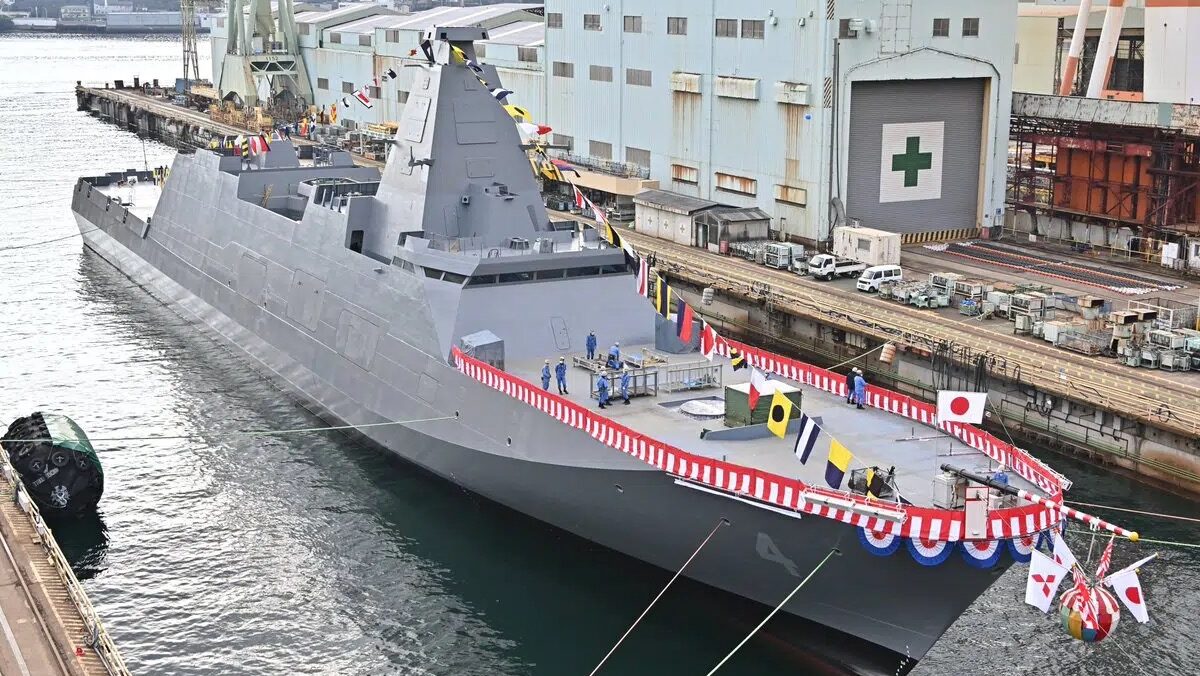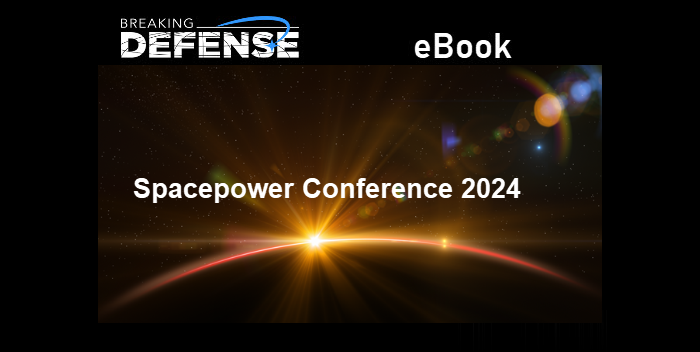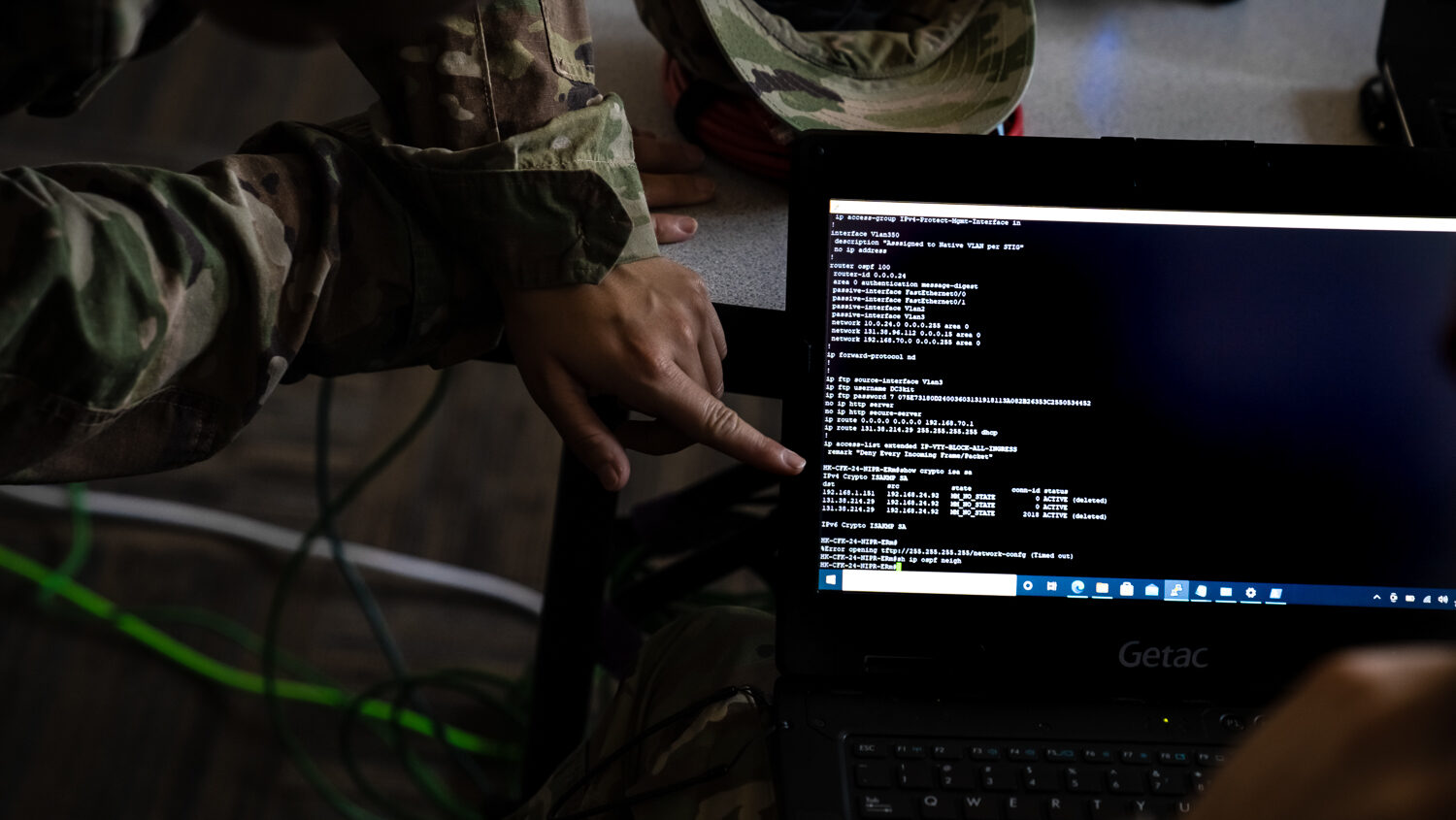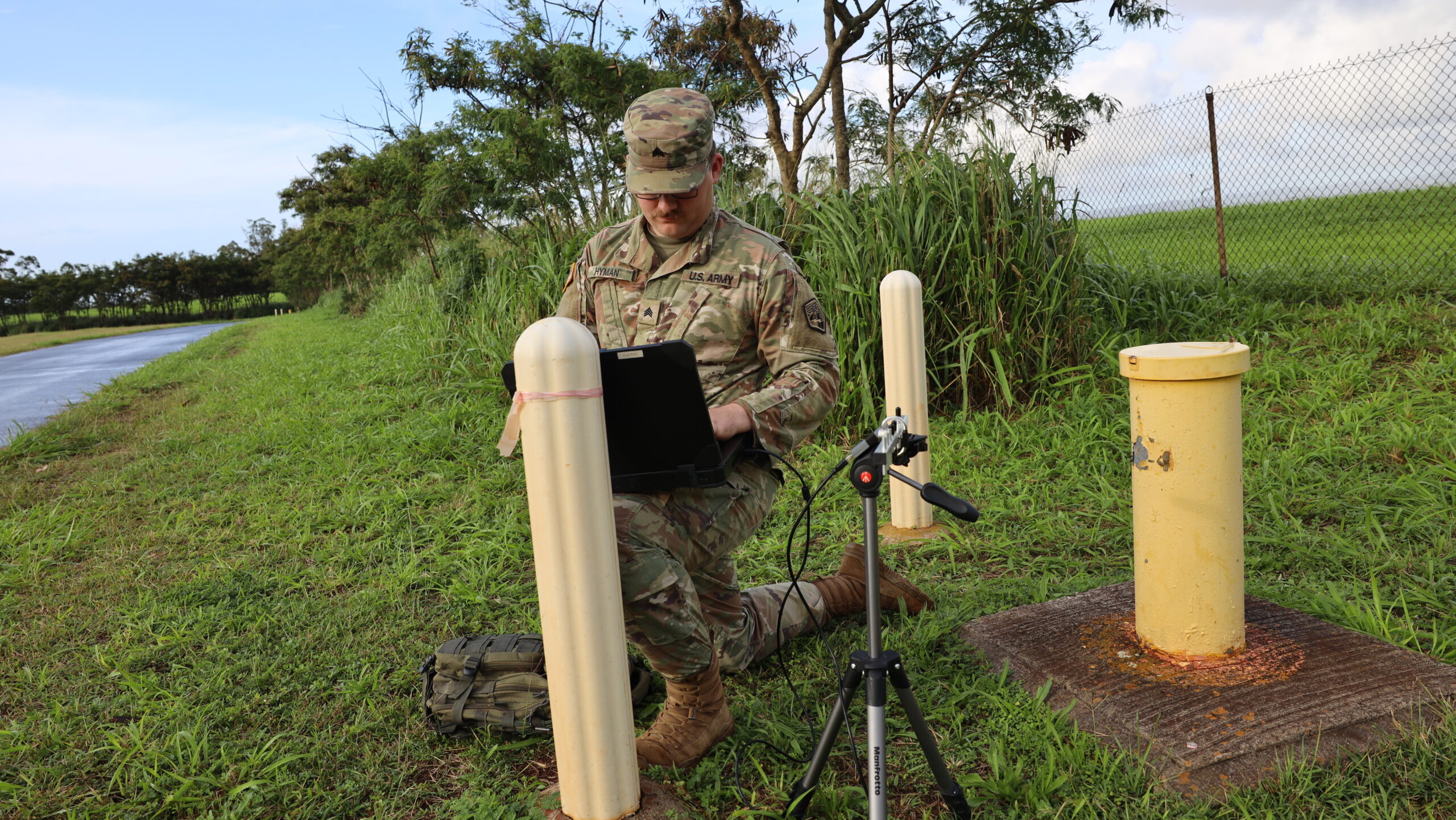Chief of Space Operations Gen. Chance Saltzman hosts an office call to officially welcome UK Air Vice Marshal Paul Godfrey to the Space Force staff in the Pentagon, Arlington, Va., June 18, 2024. Godfrey, recently promoted to Air Marshall, is the former commander of UK Space Command and the first foreign officer to join the US Space Force command staff. (US Air Force photo by Andy Morataya)
WASHINGTON — Hot on the heels of NATO’s 75 Anniversary Summit here, US Space Force chief Gen. Chance Saltzman today named the outgoing head of UK Space Command, Air Marshall Paul Godfrey, as his first “Assistant Chief of Space Operations for Future Concepts and Partnerships,” a move designed to help advance combined operations with allies.
In his Commanders Note (C-Note) issued today, Saltzman said the appointment marks the first time a foreign officer has been assigned to such a high position within a US service.
“This is a significant step forward in promoting closer cooperation with an important ally, and it exemplifies the kind of partnership we need to internalize as a Service. AM Godfrey’s arrival is unprecedented, and it pushes the boundaries of what it means to be Integrated by Design,” he wrote.
Saltzman has long preached the gospel of cooperation and close coordination with allies and partners, making “Partnering to Win” one of his three major lines of effort for the Space Force.
“Despite the Space Force’s status as the preeminent military space power, the simple fact is that we can’t succeed without allies and partners. Operations in space are too complex, too risky, and too variable for us to go it alone,” he wrote in today’s C-Note.
“[O]ur people, policies, and processes must be Integrated by Design with those of our allies and partners. This is why the Combined Space Operations Initiative is so critical, synchronizing military operations to deter aggression, enforce responsible behaviors in space, and—if necessary— defeat our adversaries. This is why we are pushing so hard on security classification reform, ensuring we can share the right information with the right people when it matters most,” he added.
“Still, we can go further,” Saltzman said.
The Combined Space Operations Initiative, stood up in 2022, first brought together the members of the 5 Eyes intelligence coalition — Australia, Canada, New Zealand, the United Kingdom and the United States — plus France and Germany. Italy, Japan and Norway were added in last December. However, up to now it has struggled to make a serious dent in the wall of red tape that hampers the ability of allies to work together to develop new technologies and capabilities.
The Defense Department in January issued its new classification policy for space programs, designed to reduce the number of those designated as highly restricted Special Access Programs in hopes of allowing more collaboration with friendly nations and industry partners. However, as then DoD head of space policy John Plumb acknowledged at the time, it will take time for the new policy to trickle down through the Pentagon’s byzantine bureaucracy. Thus, how willing program managers will be to give up the near automatic use of “NOFORN” stamp remains to be seen.




